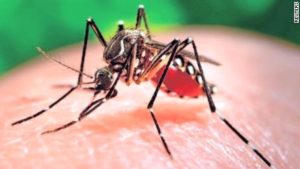The Pentagon implemented increased mosquito surveillance and control as cases of Zika virus rise in US military.
There are now 41 members of the military who are positive with Zika virus since the first half of the year. Pentagon official said eight new cases have been recorded last week. Earlier this week, the number stood at 33.

One of the military service members positive of Zika is a pregnant female. Under Pentagon health policies, female service personnel are allowed to move out of countries where the virus exists.
A senior State Department official also said there have been two confirmed Zika cases among US diplomats serving overseas. The diplomats were serving in countries where Zika has already been contracted. Seven family members of service personnel were also diagnosed with the virus.
According to the Pentagon, all exposures happened outside the US, but some of those who have had it or may currently have it may be in the United States, as there is no quarantine for Zika.
It is working closely with federal, state and local authorities to monitor the threat of Zika to military and civilian personnel and their families.
“We have been taking proactive steps for months to help mitigate the threat of Zika and other mosquito-borne illnesses in the continental United States and overseas,” a Pentagon statement said.
Military and diplomatic personnel are advised to wear appropriate clothing and using insect repellant in order to prevent mosquito bites.
The mosquito-borne virus — transmitted through the bites of Aedes aegypti mosquitoes — has been spreading at epidemic levels in Latin America and the Caribbean throughout the last year. The Zika virus can also be sexually transmitted by both men and women to their partners, the CDC said recently.
This week, at least 15 locally-transmitted cases were confirmed in South Florida, a first for the mainland U.S.
In most people, Zika virus causes no symptoms or only a mild illness. For those affected, the treatment is to rest, stay hydrated and let the virus take its course. There is no cure and no vaccine.
Zika is of greatest concern for pregnant women because it can cause a severe birth defect called microcephaly, leaving some babies with abnormally small heads and brain damage.
